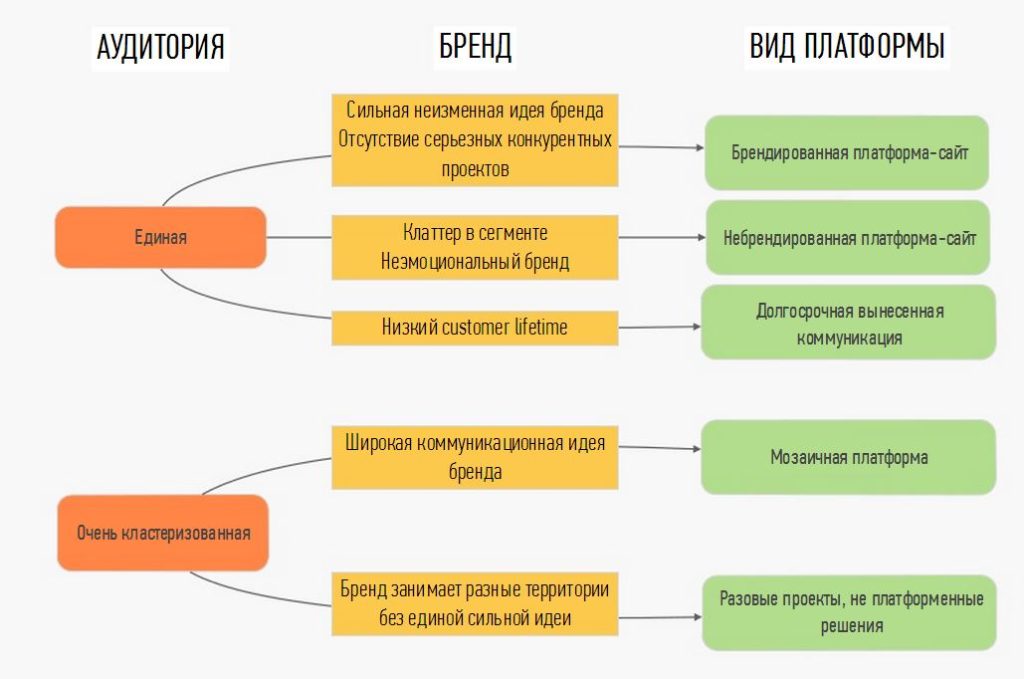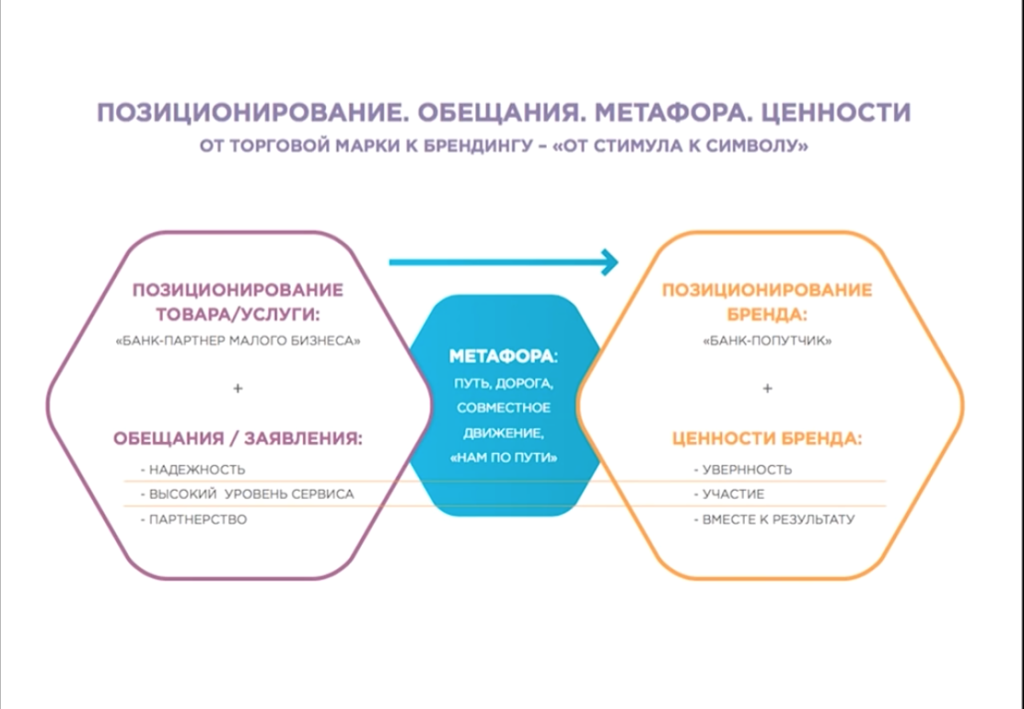What is a personal brand?
Personal brand on the Internet: a key tool for promoting an expert
In the era of digital transformation and Internet development, creating and promoting a personal brand is becoming increasingly important for successful business and achieving professional goals. A personal brand is what you represent in the online world: your unique digital presence that helps establish your expertise and uniqueness in the eyes of your target audience. In this text, we will consider why a personal brand is a key tool for online promotion and how it can be developed.
First of all, a personal brand allows you to establish your expertise in a specific field. In the sea of information we consume every day on the Internet, it is important to stand out from the competition and show that you are an expert in your field. With a personal brand, you can share your knowledge, experience, and ideas through blogs, articles, videos, and social media. In this way, you build authority and trust with your audience, which helps increase your number of subscribers and customers.
Secondly, a personal brand allows you to create a unique image and stand out from the crowd. You can use your style, voice, and visuals to reflect your personality and attract attention. Be original and authentic in your expression to attract an audience that shares your values and interests. Creativity and originality will help you stand out from the competition and be remembered by your audience.
The third important aspect of personal branding is networking and establishing professional contacts. Your personal brand will help you attract the attention of other experts and influencers in your industry. Collaborating and partnering with other successful professionals will help you expand your audience and increase your online visibility. Participating in conferences, webinars, public speaking, and other events can also help strengthen your personal brand and expand your professional contacts.
The fourth aspect of a personal brand is the ability to monetize your expertise. Building a strong and recognized personal brand gives you the opportunity to attract solvent clients and generate income from consulting, training, creating information products, or other types of expert activities. A personal brand is a valuable asset that can open doors to new opportunities and sources of income.

Define promotion goals
In the era of digital revolution, more and more people are looking to become experts in their field and attract attention to their brand in the online space. Whether it is a professional coach, a financial consultant, a culinary guru or a marketing guru, there are several important factors that will help determine the goals of promoting the expert brand online.
- Определение аудитории: Первый шаг в определении целей продвижения бренда эксперта — это понимание, кто составляет вашу целевую аудиторию. Кто они? Каковы их потребности и интересы? Где они находятся в онлайн-пространстве? Определение целевой аудитории поможет сузить фокус ваших усилий и создать контент, который будет наиболее полезен и интересен вашей аудитории.
- Setting Specific Goals: Once you’ve identified your audience, you need to set specific goals for your expert branding. What exactly do you want to achieve with your online presence? This could be increasing awareness of your brand, attracting new customers, establishing yourself as an authoritative voice in your industry, or increasing sales. Identify specific success metrics that will help you measure whether you’ve achieved these goals.
Let's say you've been doing photography for a long time and want more people to learn about your skills and come to your shoots. In this case, you can create your portfolio profile on Instagram.
You can also choose other platforms to promote your personal brand, depending on your goals:
- Facebook;
- YouTube;
- Twitter;
- TikTok;
- Pinterest;
- VKontakte;
- Classmates, etc.

Develop a personal brand concept. Brand building principles
Here are the main points about yourself that you can use to create a unique text:
- I am a person with a wide range of interests, dedicated to continuous self-development and exploration of new areas. My interests include [list interests].
- I have several strong personal qualities that help me achieve my goals. I [list qualities] and have accumulated significant life experience in [indicate area].
- My values and philosophy are the foundation of my approach to business, relationships, and life in general. I value [list values] and believe in [list beliefs].
- I am driven by social causes and want to make a positive difference in the world. My goal is to [list goals] and I aim to help my audience [state how you want to change their lives].
- Моя «Big Idea» заключается в [перечислите глобальную идею вашей деятельности]. Я уверен, что [объясните, почему ваша идея важна и как она может повлиять на общество].
- My personal legend is the story of my success, achievements, failures and victories. I have overcome many difficulties to achieve [list the important moments of your success story].
- Appearance, style, behavior and communication with the audience are important elements of my image. I [describe your appearance, style and manner of interaction with the audience].
Use these bullet points to create unique copy that reflects your personality and the goals of promoting your expert brand online.
How do you know when you're ready for personal advancement?
Идеальный статус эксперта — это комбинация двух факторов: вашего профессионализма и общественного признания вас как эксперта.
Once the first factor has been achieved, you can begin working on the second.
It is important to have specialization in your field, extensive practical experience and an understanding of current trends to begin advancing as an expert.
The first step is to create a personal brand. First, ask yourself a few questions to assess your readiness to promote:
- Are you truly an expert in your field and are you ready to prove it?
- Do you have sufficient experience and proven cases that you want to share with the market?
- Who are your key competitors?
- Do you have a clear development plan for the next 5 years, at least in general terms?
- Do you have a specific promotion goal?
- Have you identified your target audience?
- Do you know what image you want to create and promote?
- Are your values and principles clearly expressed? Do you have a recognizable image and corporate identity? Perhaps you need a personal logo that suits your industry?
Answering these questions will help you define your goals and strategy for promoting your expert brand online. Remember that constant development and improvement are an integral part of the process of becoming and promoting yourself as an expert.

Define your area of expertise
The next step in building your personal brand is to identify the uniqueness that sets you apart from others. You need to identify what skills and knowledge make you special and useful.
Безразлично, о чем вы собираетесь говорить — будь то вопросы воспитания детей, копирайтинг, вышивка крестиком или разработка сайтов — важно продемонстрировать себя и свои ценности. Это позволит людям запомнить вас и воспринимать вас особым образом.
Определите свои интересы и навыки на видном месте в социальных сетях — в описании вашего профиля. Они станут ключевыми словами, которые помогут поисковым системам выделить ваш личный бренд.

Come up with a strong message
When promoting on social media, the key factor is the need for original and unique content that will help to attract the attention of the audience and strengthen the connection with your brand. It is important to create a message or statement that clearly and concisely conveys the essence of your personal brand, highlights your expertise and values.
The statement should be a one or two sentence phrase that clearly communicates your purpose and what you stand for. It is a kind of slogan or USP (unique selling proposition).
Не ограничивайте посыл только своими навыками и достижениями. Лучше всего, если оно отражает интересы вашей целевой аудитории. Задайте себе вопрос: «Какую основную идею я могу предложить людям? Какую репутацию я хочу создать?». Повторяя свою посыл и ключевые идеи личного бренда в каждом посте, вы помогаете аудитории привыкнуть к вам, лучше запомнить вас и быстрее идентифицировать ваши сообщения среди остального контента.
So, creating a unique statement and emphasizing it in your content will help establish a strong connection with your audience, build trust, and attract more attention to your personal brand in the online space. Be original, clearly convey your value, and stay aligned with your promotional goals.

The most powerful promotion channels
Once you have figured out the goals, concept, and packaging of your personal brand, it is time to choose the appropriate channels for its promotion. Experts usually choose the following methods of promotion: using social networks, speaking at public events, membership in associations (to establish status), creating a personal website, and publishing in the media.
Личный веб-сайт. Решите, нужен ли вам собственный сайт для продвижения личного бренда. Он может служить вам визитной карточкой, витриной ваших проектов, блогом, демонстрирующим вашу экспертность, или каналом для привлечения потенциальных клиентов. Также обдумайте, нужна ли вам рассылка. Раньше мы говорили только о почтовых рассылках, но в настоящее время популярными стали рассылки в Telegram или «ВКонтакте». Подумайте, соответствует ли это вашей аудитории. Если да, то подход будет аналогичен email-маркетингу: половина контента — полезная информация, а вторая половина — посты, способствующие вашей продаже.
Публикации в СМИ. Стремитесь к публикациям в респектабельных СМИ. Это сильно повлияет на вашу авторитетность, хотя прямые продажи от этого могут быть редким исключением. Составьте список качественных СМИ, поищите интересные темы, предложите свои статьи редакциям, будьте оригинальными в текстах и строго соблюдайте сроки. Ваша задача — стать авторитетным специалистом по вашей области в глазах СМИ, к кому можно обратиться за профессиональными комментариями. Кроме статей, можно также использовать комментарии: таким образом, упоминания о вас будут чаще, но экспертный вес комментариев традиционно ниже, чем у авторских статей. Где можно найти запросы на комментарии? Например, на ресурсе Pressfeed.
Social networks. Today, the best tool for promoting yourself as an expert in the business segment is Facebook. Some of my clients who are engaged in PR promotion rely entirely on this social network and completely satisfy their needs through it. Put your personal profile in order so that everything that reflects you and your professionalism is in the foreground. In the first 3 seconds of viewing your profile, it should be clear who you are and what you do.
Develop a strategy and create content
Как и с крупными компаниями, продвижение личного бренда в социальных сетях требует четкой и последовательной стратегии. Если ваша цель — привлечь подписчиков в свой блог, сосредоточьтесь на создании качественного и уникального контента, который будет интересен людям и захочется им поделиться. Например, разработайте контент-план на месяц вперед и определите, что и когда будете публиковать.
There are several types of content that will help promote your personal brand:
- Expert Opinion and Professional Advice: Provide valuable advice, reviews, and information that will help your followers solve their problems and achieve success in their field.
- Client Cases and Testimonials: Share successful cases from your practice, demonstrate your skills and the results of your work, accompanying them with interesting comments and reviews.
- Video tutorials and broadcasts: Conduct educational video tutorials, event streams, and interviews with interesting people that will be useful to your target audience.
- Personal Opinion and Position: Express your opinion on current topics and important events happening in your industry or society, creating discussions and attracting attention.
- Storytelling: Tell stories from your personal life, share interesting facts from the past or present, memories that will help establish a deeper connection with your audience.
- Personal Moments: Post photos with family, friends, and non-work situations to show off your personality and build a more personal connection with your audience.
- Inspiration and Motivation: Share what inspires and motivates you, whether it's your favorite movies, books, places, or other sources of inspiration.
- Behind the Scenes: Show off work processes and things that usually remain behind the scenes, but may be interesting to your followers.
By the way, it’s important not to limit yourself to just your blog content. To prove your expertise, regularly share information from authoritative sources in your industry. This will help strengthen your reputation and attract the attention of new subscribers.
Go out into the fields - be among your own
To build a loyal audience, actively monitor your followers’ social media activity. This will help you better understand their interests and needs, which is especially important at the initial stage of promotion.
In addition, keep an eye on mentions of yourself online – user opinions, competitor reviews, reposts from subscribers, mentions in the media and other authoritative sources.
Например, положительные отзывы и упоминания вашего имени могут стать фундаментом для развития «адвокатов» вашего личного бренда, что способствует укреплению вашей репутации и авторитета/
Be active and join communities
Establish active interaction with your audience using various methods such as questions, discussions, comments and answers. This approach will not only increase your followers’ loyalty to your personal brand but also build trust in you.
Over time, you will have a growing audience that is willing to engage with you, ask questions, share their opinions, and seek your expertise. Don’t just post content and forget about it, but actively participate in discussions, respond to comments, and answer questions. This will make your followers feel valued and important, and they will feel a strong connection to your brand.
Organizing polls and discussions will also help you get feedback from your audience and better understand their needs and interests. Ask interesting questions, conduct polls on topics that interest you, and carefully study the audience's responses. This will allow you to customize your content to meet the needs and expectations of your audience.
Also, be attentive to the comments and feedback left by your audience. Maintain a dialogue, respond to questions and comments, and show that you value each person’s opinion and contribution. This will help create an atmosphere of mutual respect and trust.
Используйте социальные медиа платформы, блоги, форумы и другие каналы для активного взаимодействия с вашей аудиторией. Помните, что ваши подписчики — это не просто числа, а реальные люди, с которыми можно установить взаимодействие. Покажите им, что вы готовы слушать, помогать и делиться своими знаниями.
Find influencers or become one
Активное взаимодействие с инфлюенсерами в социальных сетях является неотъемлемой частью продвижения личного бренда. Инфлюенсеры — это люди, у которых большое количество подписчиков и активное присутствие в своих блогах и социальных сетях.
By engaging with influencers, you are promoting yourself and your brand. Influencers already have the trust of their audience, and therefore their recommendations are valuable. When influencers mention you as a brand in their posts or make recommendations, it helps to increase your visibility, reputation, and authority, and attracts new followers.
Collaboration with influencers can come in many forms, such as them mentioning your product or service in their posts, doing reviews, running contests with your prizes, or inviting you to their events. It is important to find influencers who are relevant to your target audience and have similar values and interests. Such partnerships will help you achieve maximum impact on your target audience.
However, it is important to remember that collaboration with influencers should be mutually beneficial and organic. Influencers also value collaboration with you, so it is important to offer them something valuable and interesting. Be active in the comments and communicate with their audience, share useful information and offer unique offers. This will help you establish good relationships with influencers and get the most out of the collaboration.
Additionally, you can also aim to become an influencer yourself. Building your audience and creating quality content will help you establish yourself as an expert and authority in your field. Use social media, blogs, podcasts, and other platforms to distribute your content and engage your audience. Regularly engaging with your audience and providing valuable information will help you build a strong personal brand and become an influential voice online.
Overall, engaging with influencers and becoming an influencer yourself are effective strategies for promoting your personal brand on social media. This allows you to increase your visibility, expand your audience, and establish yourself as an expert in your field. Keep in mind the win-win and organic nature of your collaborations with influencers, and use the opportunities that social media provides to achieve your branding goals.
Conclusion
In conclusion, developing a personal brand is an essential part of promoting yourself online as an expert. It helps establish your expertise, stand out from your competitors, build contacts, and monetize your activities. Use personal branding strategies and gradually achieve success in your industry.








